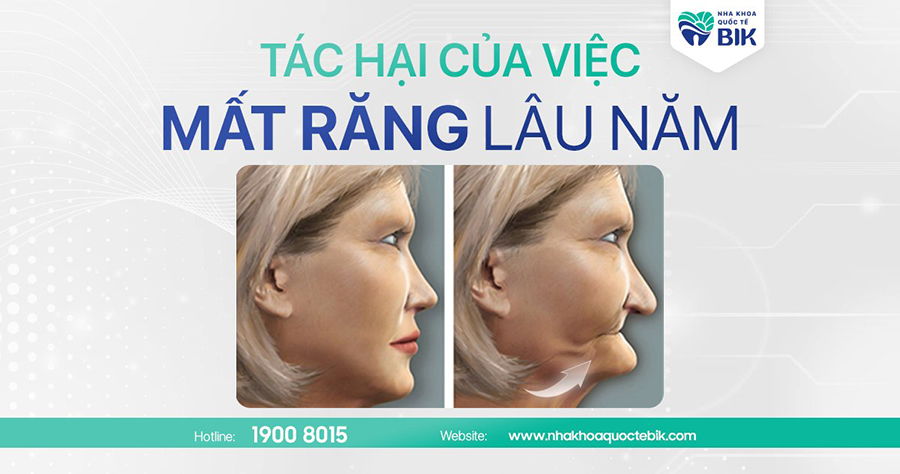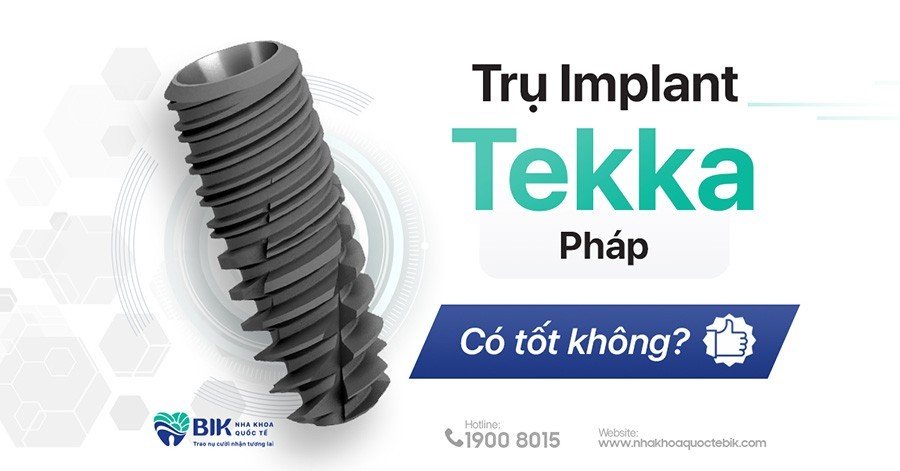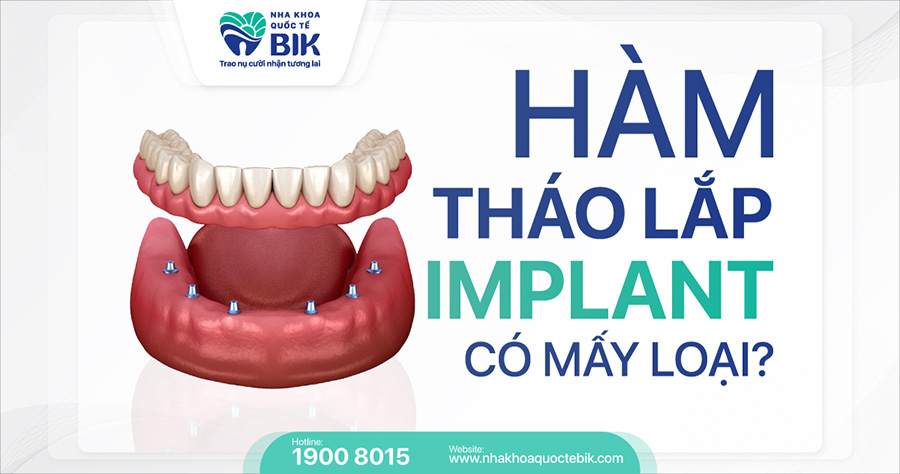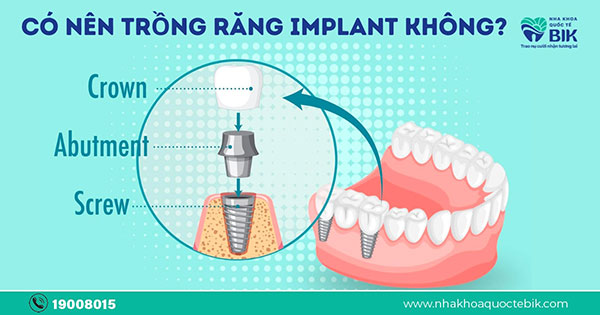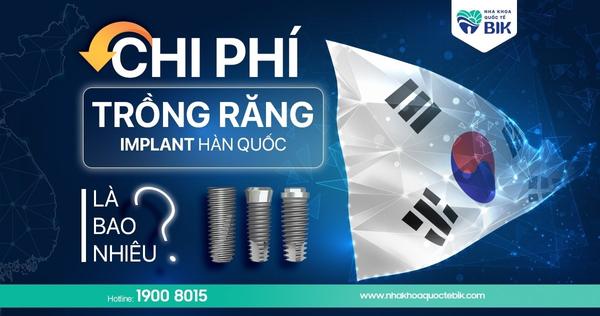Why should you pay attention to the notes when implanting implants?
Implantation is actually a relatively complicated dental technique. Therefore, to achieve high restoration efficiency, patients must clearly understand the specific notes when implanting implants.
Implantation is the process in which the doctor implants an implant post in the jawbone. When the post and the jawbone have integrated together, a porcelain tooth will be placed on top. The implant post acts as a real tooth root, so it is not harmful to health.
So is implantation good?
Implantation is the most advanced tooth restoration method today. The method has many outstanding advantages such as:
– Effectively prevents bone loss, ensuring facial aesthetics.
– Helps chewing more comfortably and easily without feeling entangled.
– Implants help replace one or more lost teeth.
– Implant teeth can last longer, even longer than real teeth if properly cared for.
As can be seen, dental implants have many different advantages. Helps perfectly replace lost real teeth. However, to achieve the best results, patients need to clearly understand the notes when implanting implants.
What are the notes before implanting dental implants?
Before implanting implants, you need to determine whether you are a case that meets the requirements for implanting implants. At the same time, know what to keep in mind when implanting.
– Cases where implants cannot be implanted
+ People with a history of cardiovascular disease, wearing an artificial heart valve, kidney disease, metastatic cancer, blood pressure…
+ People who have lost teeth but have a narrow jawbone, at this time the bone and gums are not enough to insert the dental implant.
+ People who have lost teeth for a long time, causing the jawbone to deteriorate too much.
+ Children who are in the development stage also cannot have implants because the jawbone has not developed stably.
– The number of implants does not necessarily have to be equal to the number of missing teeth
Not necessarily How many teeth are lost, the number of implants must be implanted. Instead, it is possible to implant fewer implants than the number of missing teeth depending on the position and quality of the bone when the implant is attached. At the same time, it also depends on how wide or narrow the missing tooth space is and how the opposing teeth are.
– Choose a doctor with good expertise
Implantation is a relatively complicated technique, so it requires the doctor to be highly qualified and experienced. Only then can the quality and aesthetics of the teeth after implantation be guaranteed. Therefore, it is best for patients to find out about reputable dental addresses beforehand.
Things to note after implantation
After successful implant surgery, patients also need to pay attention to care to ensure long-term durability and no complications. Specifically:
– Take medication as prescribed by your doctor
Usually, after implant surgery, the doctor will prescribe a prescription for pain relief and other support. At this time, the patient needs to use it according to the doctor’s instructions. Absolutely do not buy medicine on your own to take.
– Do not use stimulants
After implant surgery, patients absolutely must not use stimulants such as: Tobacco, alcohol… for about 2 – 4 weeks. Because the use of stimulants will make the wound take longer to heal and easily become infected.
The reason is that these stimulants contain toxins that easily enter the blood. From there, it reduces the amount of oxygen to nourish healthy tissues.
– Do not use drugs containing Aspirin
In fact, it takes a certain amount of time for the implant and jawbone to integrate with each other. At this time, the patient will feel sudden pain. However, you should not arbitrarily buy painkillers or antibiotics to take. Because it is very possible that these drugs contain Aspirin, which can cause bleeding after surgery.
– Appropriate diet
You should limit eating hard foods or drinking hot liquids after surgery to avoid causing pain and reducing effectiveness. Therefore, you should prioritize soft and easy-to-swallow foods. At the same time, stay away from foods that easily create crumbs such as: Fried sweet potatoes, French fries… Because crumbs can easily fall into the implant area and cause infection.
In addition, you should drink plenty of water to maintain oral hygiene and reduce pain. This helps the wound heal quickly.
– Avoid strenuous exercise or direct impact
In fact, after the transplant, the wound has not healed yet, so strenuous exercise should be avoided. At the same time, it is necessary to avoid direct collisions such as: vigorous exercise, brushing teeth in the implant area, spitting continuously… Because this can cause the implant to fall out.
– See a doctor immediately if there are any unusual symptoms
Normally, after implant placement, there will be symptoms of pain, bleeding, swelling… After a few days, these symptoms will go away, but in cases that persist, you need to see a doctor for a re-examination.
With the above notes when implanting implants, we hope to help you know what to do when implanting implants. Thereby, helping you quickly own beautiful, even teeth, ensuring chewing function.




